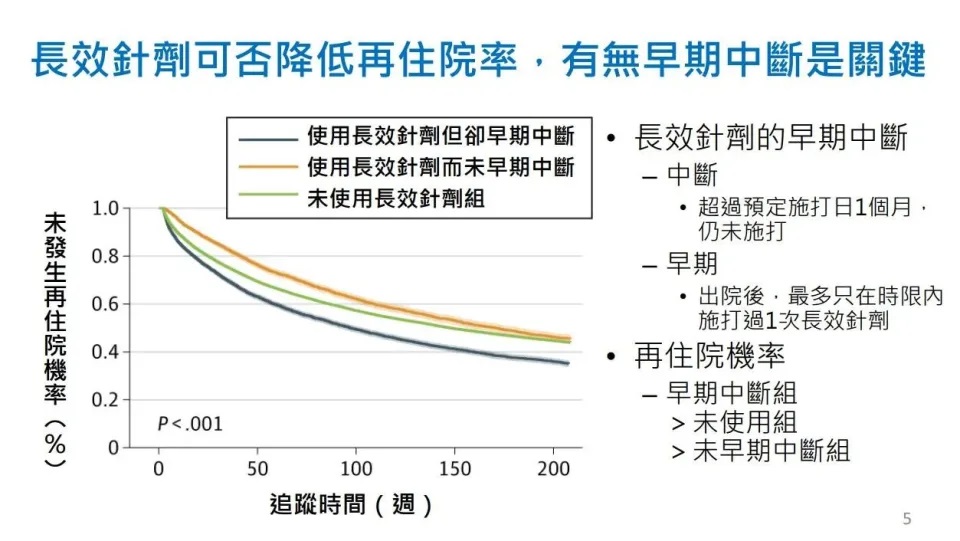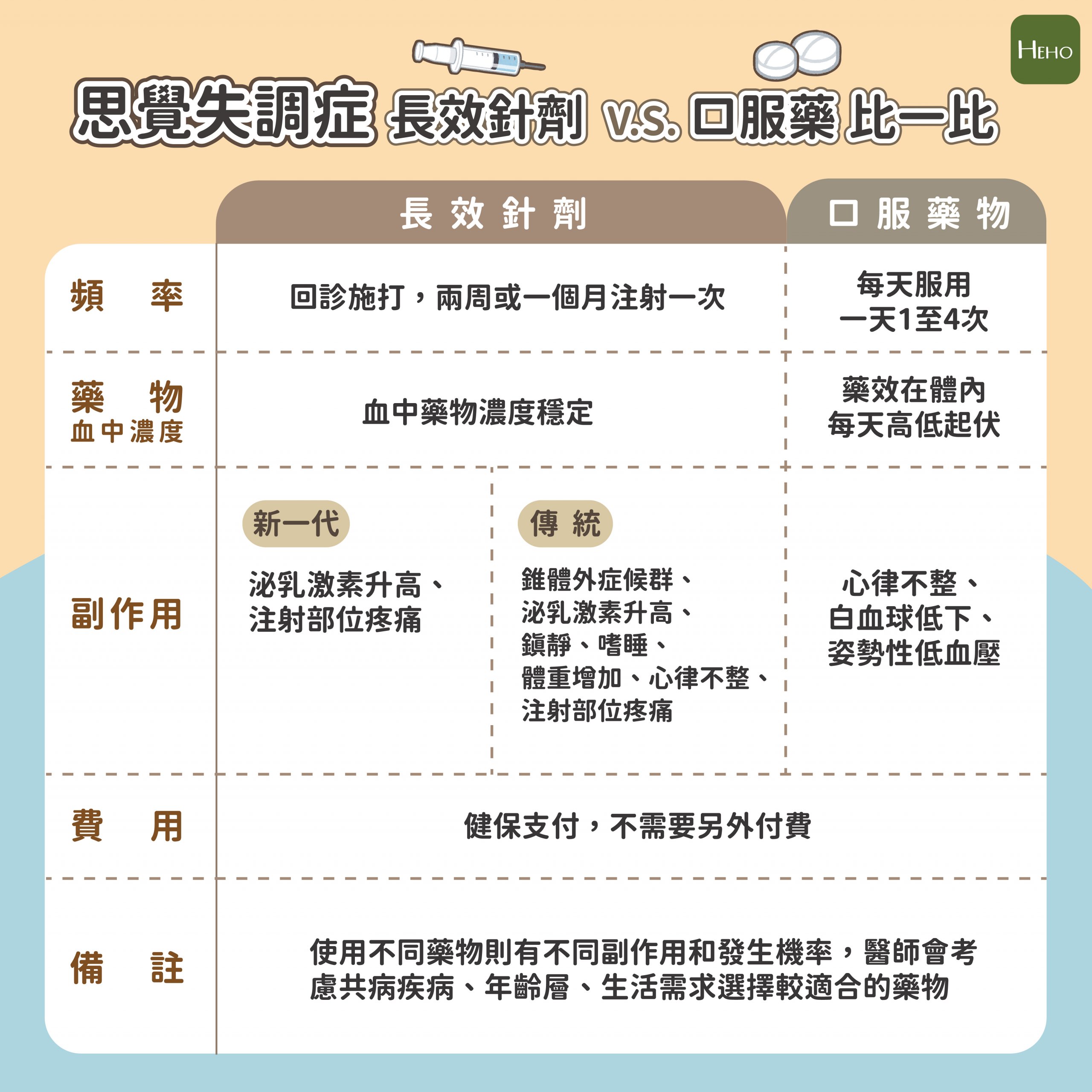The golden period for treating schizophrenia patients is within the first 5 years of onset, during which brain function declines rapidly. Consistent medication use can effectively reduce the risk of relapse. A recent study by the National Health Research Institutes (NHRI) shows that using long-acting injectables for first-time hospitalized schizophrenia patients can prevent early medication discontinuation and significantly lower the risk of rehospitalization. Patients who receive long-acting injectables and avoid early discontinuation of medication can reduce the risk of rehospitalization to 12-13%. (Image/Heho Health)
Patients who receive long-acting injectables and avoid early discontinuation of medication can reduce the risk of rehospitalization to 12-13%. (Image/Heho Health)
This research, led by NHRI Vice President Dr. Chen Wei-chien and a cross-institutional team, tracked over 50,000 first-time hospitalized schizophrenia patients. The findings, published in the international journal JAMA Network Open, reveal that while long-acting injectables have side effects similar to oral medications, they only require administration every two weeks to three months, effectively addressing issues with patients not adhering to medication regimens. However, due to the higher cost and limited awareness of long-acting injectables, they are often considered a second-line treatment.
The study results indicate that patients who receive long-acting injectables and avoid early medication discontinuation can reduce their rehospitalization risk to 12-13%, whereas those who discontinue early see their risk increase to 22-25%. This underscores that administering long-acting injectables during hospitalization and ensuring continued medication use can effectively reduce the risk of rehospitalization. Comparison between long-acting injectables and oral medications. (Image/Heho Health)
Comparison between long-acting injectables and oral medications. (Image/Heho Health)
To improve care for psychiatric patients, the Ministry of Health and Welfare (MOHW) introduced special funding for long-acting injectables in the National Health Insurance system in 2022, with the usage rate reaching 82.8% by 2023, indicating increasing demand in clinical practice. The study emphasizes that enhancing awareness among doctors and patients about long-acting injectables and implementing shared decision-making can help reduce resistance to these treatments and prevent medication discontinuation. This is crucial for reducing the risk of relapse and rehospitalization in schizophrenia patients.







